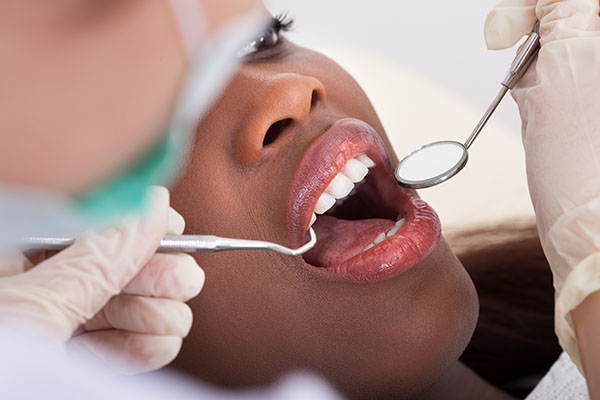 Food and drink have a lot to do with oral health, but certain medications can also have an impact. While bleeding gums are often associated with signs of plaque buildup along the gum line, it is possible for those who take blood thinners to be more susceptible to this condition as well.
Food and drink have a lot to do with oral health, but certain medications can also have an impact. While bleeding gums are often associated with signs of plaque buildup along the gum line, it is possible for those who take blood thinners to be more susceptible to this condition as well.
Blood thinners are used to help manage serious medical conditions, but they can also impact mouth health. It is crucial to pay close attention to oral hygiene and dental checkups if prescribed blood-thinning medications.
The effects of anticoagulants
Blood thinners can be purchased as an over-the-counter medication (as with aspirin) or prescribed by a physician. The purpose of these medications is to reduce the chances of having either a stroke or heart attack, as the components work to stop blood clots from forming. If a blood clot is able to travel to the heart or brain and cause a blockage, serious side effects occur. However, because blood does not clot as fast when on anticoagulants, it can create complications during medical procedures or when a wound occurs.
Bleeding gums are also more complicated when blood thinners are involved. It is normal for healthy gums to bleed a little when flossing or brushing, but anticoagulants can exacerbate this issue. Brushing the gums too hard or with a stuff-bristled toothbrush can cause the gums to bleed more than usual, and great care needs to be taken when the bleeding does not stop.
The impact of blood thinners on oral health
One of the more serious concerns with blood thinners and oral health is the potential for complications during dental procedures. The dental professional should always be told in advance when a patient is on blood thinners, as a procedure may be put on hold while there is an increased risk of heavy bleeding. However, being on blood thinners does not mean it is OK to reduce vigilance on oral hygiene.
Some people taking anticoagulants experience mild to severe bruising of the gums during routine hygiene like brushing and flossing, or they may notice heavier bleeding if they sustain an injury to the mouth. It is not normal for the gums to bleed for prolonged periods of time or to bleed significantly each time flossing and brushing takes place. This could be a sign of a more serious concern that needs to be checked.
Minimizing the risk of bleeding
Bushing and flossing twice a day with an extra-soft-bristled toothbrush can reduce the risk of excess bleeding. When plaque is found along the gumline, it leads to inflamed gums. A sign of this inflammation is increased bleeding, and if left unresolved, can lead to the dangerous condition of periodontitis. Increasing the intake of vitamin C can help the body fight off infections that cause the gums to bleed, and rinsing with an antibacterial mouthwash can also rid the mouth of plaque and promote healthy gums.
Conclusion
Bleeding gums can be expected when taking blood thinners, but they should never be taken lightly. Maintain regular oral hygiene practices to reduce the risk of more serious bleeding from gum disease.
Request an appointment or call Dr. Call Dental Center at 706-425-6240 for an appointment in our Dalton office.
Related Posts
Gum disease is one of the most common oral health issues dentists encounter in patients of all ages. It can range from mild gum irritation to severe conditions that affect the tissues and bones supporting your teeth. The root cause of gum disease is typically the accumulation of plaque on the teeth and gums. Understanding…
Many people think it is a normal part of an oral care routine, but dentists warn that bleeding gums are a sign something is wrong. When you brush and floss your teeth, sometimes you may see a little blood coming from your gums. In most cases, bleeding gums are a sign that you may have…
There are many reasons why bleeding gums may occur. If it only happens once in a while, it is typically not cause for concern. Gums can bleed because of brushing or flossing that is overly vigorous. If bleeding is an ongoing occurrence, however, there may be an underlying medical or dental condition causing it. The…


